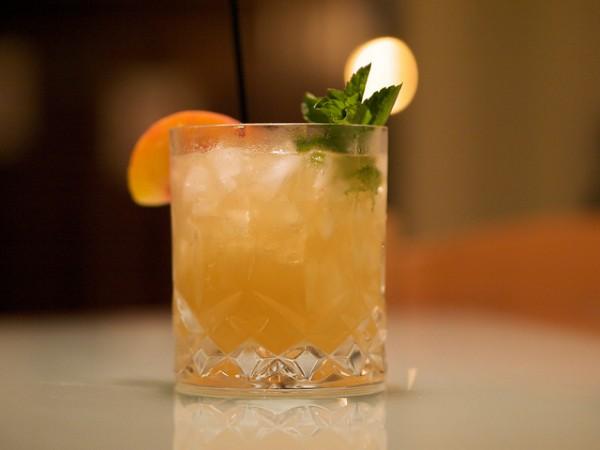
Did you ever think twice before chucking down a drink or two because you know that the number of calories you'll be sipping in along with it? Worry, no more. Scientists have made 'virtual cocktail' glass which will allow you to enjoy 'zero-calorie' drink with zero-guilt.
The 'virtual cocktail' glass lets the user change the flavour of the drink using a smartphone. There's a customisable range of drinks and tastes -- the 'Vocktail' can change a glass of water into a Mojito at the press of a button, Daily Mail reported.
This is the world's first technology that tricks your brain to think that it is experiencing a specific flavour by fooling the senses of sight, smell and taste. And, the glass' three sensory components are controlled via a smartphone app.
The unique technology was developed by researchers at the National University of Singapore who claim: "Virtual drinks could one day be used to satisfy your taste buds without any of the calories by turning water into your favourite beverages."
Lead developer Dr Nimesha Ranasinghe said: "Our approach is to augment beverage flavour experience by overlaying external sensory stimuli."
"For example, in the Vocktail, we overlay colour, taste and smell sensations to create an adjustable flavour experience."
The scientists claim that the software can combine a number of smells, colours and tastes, and the Vocktail can create almost any flavour.
Dr Ranasinghe explained: "Flavour is mainly how we perceive food and that's achieved through the use of these senses...Therefore, by changing the colour of the drink, using different smells and changing the taste through electricity, we are able to simulate the flavour of a drink, without it actually changing the liquid."
The rim of the glass has two electrode strips which send electric pulses into the tongue of the user to stimulate the taste buds. A 'jolt of 180 microamps mimics a sour taste, 80 microamps give a bitter taste and 40 microamps a salty taste'.
The smell also tricks the brain the same way. There's an LED light system at the base of the glass which also fools the brain. Also, the colour is altered to correspond to the drink.
Dr Ranasinghe said: "We know that simulating our sense externally is not as convincing as the real taste of the drink, so we're constantly conducting experiments to create an even more immersive experience."
He added: "We want to bring it to pubs and bars, but we need industry partners to bring it out of the lab and into reality."














